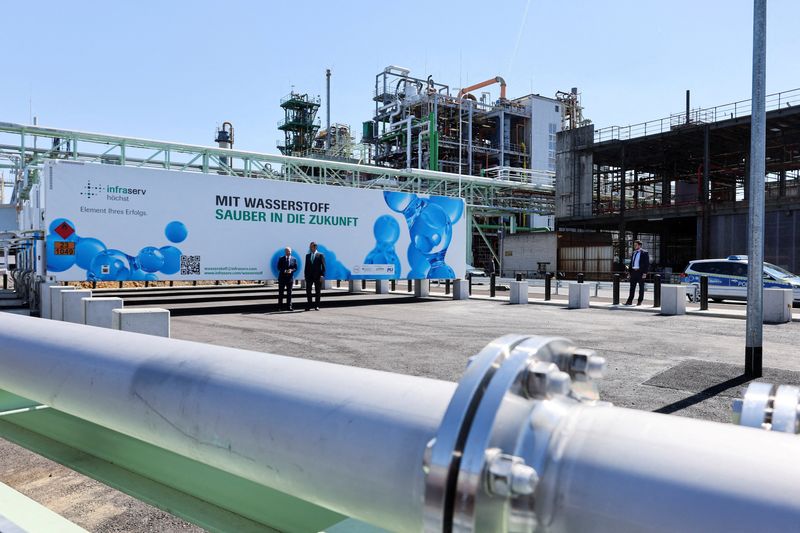By Louisa Off and Riham Alkousaa
KELHEIM, Germany (Reuters) - From the moment Russian gas exports to Germany were first disrupted in June, German firm Kelheim Fibers began casting around for alternative options to keep its engines running.
As a result, the Bavarian-based firm, whose fibres are used in anything from teabags to tampons, will be able to use heating oil instead of gas starting mid-January.
The downside is that will increase carbon emissions and for the longer term, the firm is considering a switch to hydrogen, which is a much cleaner energy source provided it is produced using renewable power.
"We want to be one of the first large companies in Bavaria to switch to hydrogen," Craig Barker, managing director of the 87-year-old firm, told Reuters.
Energy costs account for over 60%-70% of the company's variable expenses, overtaking that of its main raw material, Barker said.
Kelheim Fibers is one of many small and medium-sized companies that form the backbone of Europe's biggest economy, and that are seeking to diversify their energy mix to maintain output.
Russia's reduction of gas supplies to Germany following Moscow's invasion of Ukraine in February, has forced Berlin to reactivate or extend the lifespan of its coal-fired power plants, putting greenhouse emissions targets in jeopardy.
However, ifo economist Klaus Wohlrabe said the crisis could eventually lead to greener production.
"Relying on fossil fuels for the long term () has proven to be a risky path. So in the medium term, at least, companies have no choice but to reorientate themselves," Wohlrabe said.
Kelheim Fibers, which has so far covered 85% of energy needs with gas, is in talks with stakeholders over hydrogen imports with an expected annual consumption of about 30,000 tonnes, starting from 2025, Barker added.
"We definitely need infrastructure," he said, adding that a pipeline will be needed to connect to the German refinery Bayernoil and a port to cover the demand the company cannot meet from domestically produced hydrogen.
Earlier this month, Germany's Economic Affairs Ministry approved the construction of the country's first hydrogen pipeline network. It also announced an action plan to support small and medium-sized companies as they switch to climate-neutral production, including expanding hydrogen infrastructure.

More is required to accelerate investments in hydrogen, including a Hydrogen Act to cut bureaucracy and regulate the hydrogen ramp-up quickly, utility industry association BDEW said earlier this month.
"2023 must provide new impetus for investments in renewable energies, hydrogen, hydrogen-capable gas-fired power plants and energy networks," BDEW president Kerstin Andreae said.